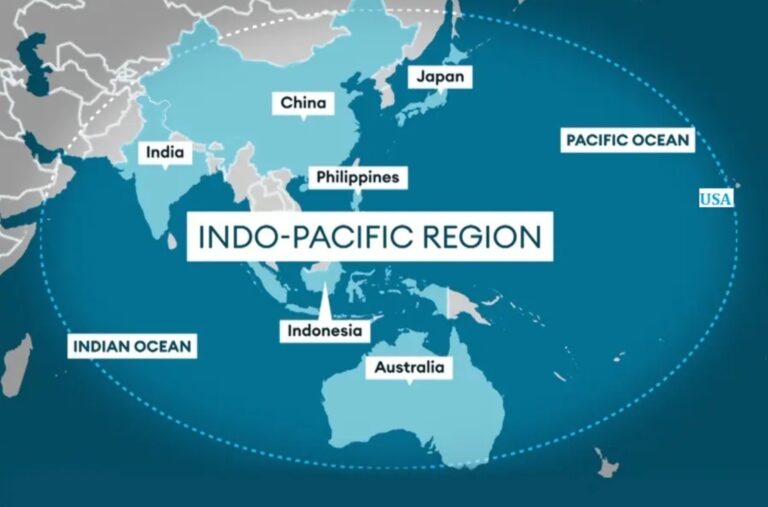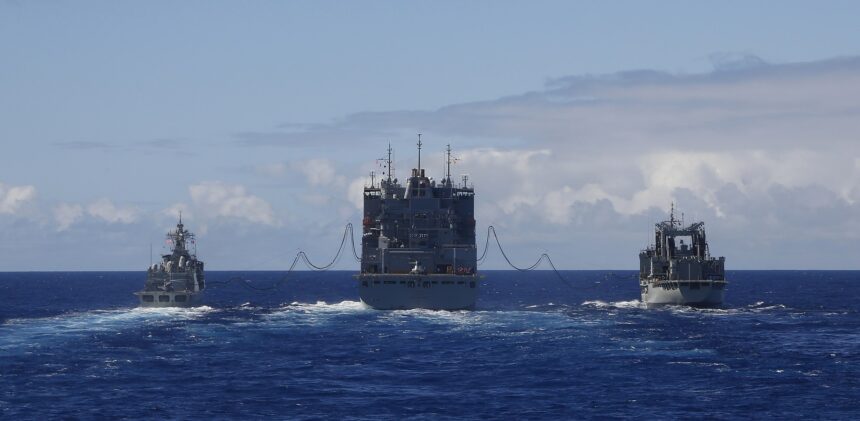New Delhi: Indo-Pacific has always been very important for India to keep an eye on economically
and security.
Indo-Pacific:
The Indo-Pacific region is home to some of the world’s most populous and economically
diverse countries, including India, China, Japan, Australia and Indonesia.
This concentration of economic and political power is an important center organization
of global geopolitics.

Economic importance of Indo-Pacific:
The region is a major driver of the global industry. It includes major maritime trade
routes, such as the Strait of Malacca, through which a significant portion of world trade flows.
Many of the world’s most connected and most important ports are located in the
Indo-Pacific, promoting trade between Asia, Europe and Africa.
Neo Activity in Indo-Pacific:
India commissioned guided-missile destroyers I Shuz Mia, I Shuz Kiltan and I Shuz
Kavaratti in the Red Sea region. The concern for India is that both China and Pakistan
are jointly facing challenges on two fronts, which has complicated its security
calculations.
Challenge for India in the Indo-Pacific region:
Many changes are taking place in the current Indo-Pacific region, which is a matter of
concern for India, in many ways this is the time to test India’s maritime strategy. Some
very important changes are being seen in the Indo-Pacific. India’s influence and
imperialism are being challenged by the sticky markets of China and Pakistan in the
Indo-Pacific region. Maritime security involves naval cooperation in naval exercises,
such as ‘Clemenceau 21’ with the French Navy, involving the Indian Navy and the
United Arab Emirates, and other major Indian Ocean nations.
China’s assertiveness in the Indo-Pacific region is the biggest challenge for India, with
China’s Belt and Road Initiative (BRI) and Coastal Road posing the biggest challenge to
India’s influence in the Indian Ocean Region (IOR).
India needs to rethink its maritime grand strategy, extending beyond the traditional
anti-piracy constellation to a more significant regional presence.
The expansion of naval vessels and operations, such as India’s plan to build a naval
base in the Seychelles, signals a shift towards more maritime maritime operations. The
establishment of a base in Djibouti and heavy Chinese naval presence at a base in
Gwadar, Pakistan, have sent a clear signal to India about being a weak power.
Economic and Trade Implications Indo-Pacific:
Guaranteeing freedom of navigation in the Red Sea and IOR and protecting commercial
investors is critical to India’s right to trade.
The focus is on strengthening the economic and cultural interests of West Asian and
African countries
Policy Adaptation and Collaboration:
India has been prompted to reevaluate its foreign policy and military alliances to suit the
new two-front situation.
IOR cooperation with other countries is necessary to strongly counter China’s growing
dominance. India should invest in a comprehensive and well-thought-out Indo-Pacific
strategy that goes beyond immediate objectives and looks toward a sustainable
normative policy.
Strengthening the IOR and its alliance with other countries, with a focus on maritime
security, economic cooperation and democracy.
The development of a modern naval force capable of providing a variety of responses,
including humanitarian assistance, anti-piracy operations and major dominance.







